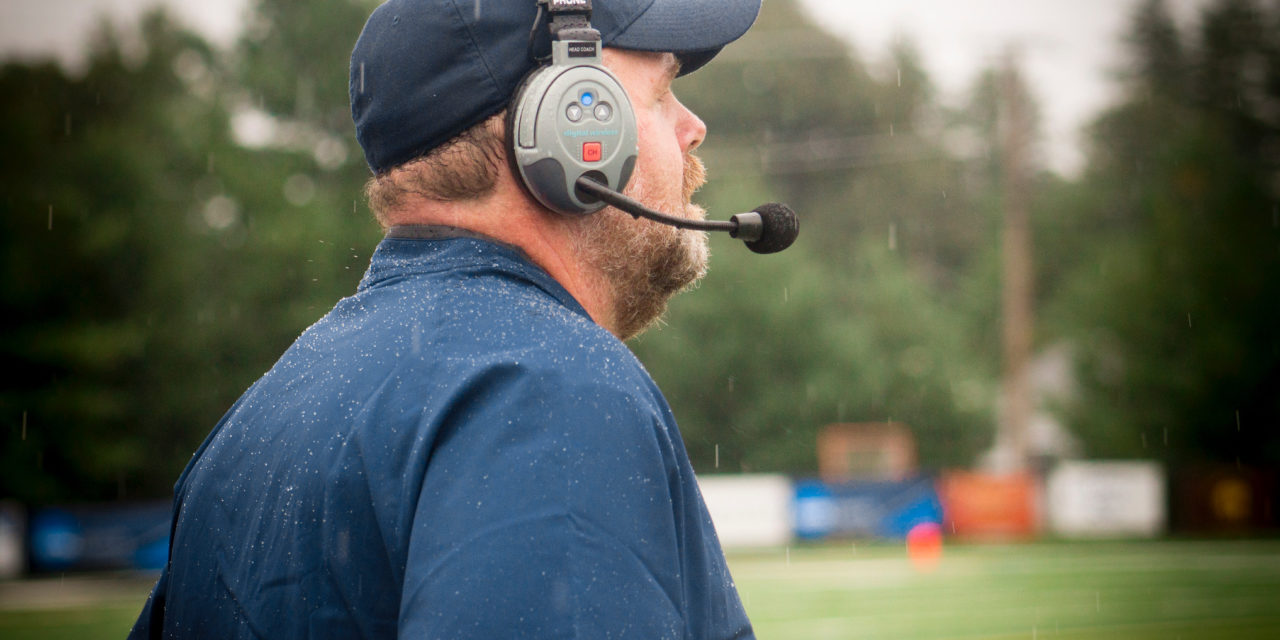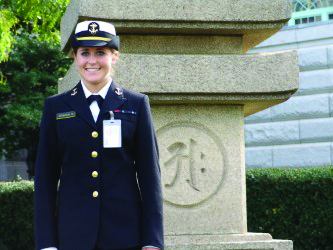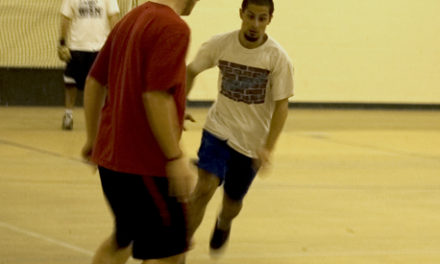By Cheyenne Graden, Victoria Albanese and Madeleine Cole; The Whetstone
One of the first times sophomore Ibrahim Mansaray worked with Coach Mike Drass was during the first year he became a Wesley Wolverine.
“One time in the spring in the middle of practice, offense was going against defense and I was in at running back and he blew the whistle and called me over,†Mansaray said. “I was thinking I did something wrong, but he just gave me a hug and said I was doing a great job.â€
This was the way Drass worked, he said.
“He’d always check up on me and make sure all was well because he just cared that much about all of his players,†Mansaray said.
Drass, 57, died May 14, after coaching football at Wesley for nearly 30 years.
Beginning as a defensive coordinator in 1989, he became head coach four years later, and turned the Wesley Wolverines into a championship contending team for the next 25 years, accruing a record of 229-69-1, only second in all-time victories for a Division III coach.
With Chip Knapp as the new head coach, the team is still aiming toward a conference championship and making the national playoffs.
“The impact that he has made and the great things that he had brought to the program – we have been able to take it and learn from all he has taught us,†Knapp said. “All the things the players are able to learn from all of the knowledge he had passed down – they can move forward with what Drass had wanted us to learn.â€
Football team captain and senior Devin Miller said what stuck out about Drass was his kindness.
“One of my fondest memories of coach Drass was not a specific memory but how much he cared about not just his players but everyone,†he said. “He would do everything in his power to help you out with anything you needed. He would give his all for you.â€
Tracey Short, who was named the college’s athletic director shortly after Drass’ death, said Drass was an instrumental part of Wesley.
“He was one of a small number of people that have worked at Wesley College for over 29 years, through four college presidents,†she said. “He worked well with all of the departments and was always trying to help the college succeed.â€
Like other coaches, Drass was more than that to many of his players, she said.
“For many, he was their father away from home,†she said. “‘A positive role model who taught me how to be a man,’ was a phrase echoed at every Homecoming or Hall of Fame where football players were inducted.â€
Short said Drass took a losing team and transformed it into a championship one.
“He led them first to the ECAC championship and most recently made them a powerhouse in the NCAA,†she said. “His success is unmatched in Wesley history and his winning percentage is among the best in the NCAA.â€
Drass did not only positively affect male students.
Sophomore Beth Manlove became an assistant manager on the football. She said Drass made her feel she belonged to the team the first time she met him.
“Coach Drass was one of the reasons I came to Wesley,†she said. “One of my first visits as a freshman, I met with him about becoming a football manager. I immediately felt like I belonged. He was someone who I could always count on to be there for support and help whatever the case may be.â€
President Robert Clark said Drass did much more than coach football and lead Wesley athletics: he inspired students to be their best.
“Greatness and champions are not defined on the field, they are defined by the way they change lives and make a difference in your community,†he said. “This is exactly what Coach Drass accomplished.”
A defensive rookie of the year who had bad grades broke some team rules one year, Clark said. Drass benched the player.
“Drass called him into his office and asked him to go home and reflect on his future and what he wanted to accomplish at Wesley instead of traveling to an away game,” Clark said.
The Wolverines have won their first three games this year under Coach Knapp, and the players are happy, seeing it as a tribute to Drass and his legacy.
“I like having Coach Knapp as the new head coach because we have all already been with him before so we don’t really have to adjust to a new system or anything like that and we already have a relationship formed with him,†Mansaray said.
Because Knapp assisted Drass for a long time, Mansaray said their coaching styles are similar.
But there is one difference, he said.
“If I had to say one thing that was noticeably different, I’d say that Coach Drass was a much more vocal coach,†he said.
Player Vince Ebron said the team continues to do great under Knapp.
“Everyone is focused on our main goal, which is to keep this winning tradition going for Coach Drass,†he said. “This year looks very promising for us, we just have to keep working hard and nothing will stand in our way. This is Drass World.â€
In honor of Coach Drass, Knapp created a custom sticker worn on the back of each player’s helmet. The team also continues to honor Drass before each game.
Perhaps one of the greatest legacies of a coach with Drass’ impact is his continued presence, as if he were still on the field or in the locker room.
Athletic Director Short said she sometimes forgets Drass is gone.
“Some days when I am having a rough time, I often think to call Mike, then realize he is no longer with us.â€





